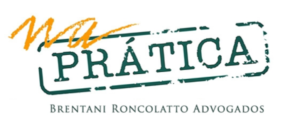blog
Software Taxation – Consultation Solution COSIT No. 107/23 changes the understanding of tax assessment on remittances abroad due to international licensing of software
9 de April de 2024 | PublicationsThe Brazilian Federal Revenue Service (“RFB”), through its Coordination of the Taxation System (“COSIT”), signed on June 6, 2023, a new understanding regarding the assessment of the Social Contributions PIS-Import and COFINS-Import on the amounts paid, credited, delivered, employed or sent by individuals or legal entities domiciled in Brazil to residents domiciled abroad, for software licensing.
According to the aforementioned Consultation Solution, the consideration paid to the software licensor abroad, whether for the acquisition of the license, or its renewal, whether or not there has been customization to the end user, and regardless of the way in which the software is made available (in the cloud, on a physical server, on media, etc.) characterizes royalties. Thus, such remittances abroad are subject to the Income Tax Withheld at the Source (IRRF), as a rule, at the rate of 15%.
It is important to remember that this rate will be applicable unless Brazil has signed a Treaty to Avoid Double Taxation in matters related to Income Tax, with the country in which the software licensor is domiciled. In this case, the Treaty prevails over domestic legislation and the rate provided for in such Treaty and the method chosen in the Treaty to avoid double taxation must be observed.
On the other hand, if the software licensor’s country of domicile is a tax haven[1], then the licensee in Brazil must withhold Income Tax on remittances of royalties abroad at the rate of 25%.
Before this Consultation Solution, it was usual to make a distinction between the type of contracting, to attract or avoid taxation by the withholding Income Tax. The licensing of off-the-shelf computer programs, that is, those sold on a large scale to an indistinct mass of end users (formerly licensed through media and then through file downloads) led to the understanding that they were equivalent to merchandise, and thus, what was paid to the licensor abroad was the price of merchandise and, therefore, did not constitute taxable income subject to the Withholding Income Tax.
Software licensed by order of the user were characterized by a specific task and, therefore, the consideration for the right to use the program would be characterized as a royalty, giving rise to the Withholding Income Tax at the rate of 15%.
From another perspective, said interpretation also led to the fact that the off-the-shelf software license characterized the circulation of goods and thus ICMS (Sales Tax) would be levied, which taxable basis was the value of the media. The licensing of customized software was characterized as a service, giving rise to taxation by the ISS (Service Tax), calculated on the value of the license.
Such dichotomy in the tax treatment of software licenses was based on the Federal Supreme Court’s (“STF”) interpretation established in the judgment of Extraordinary Appeals numbers 176,626 and 688,223. According to the Constitutional Court, off-the-shelf software resembled a merchandise placed on the large-scale consumer market. Therefore, it should be taxed as such.
It turns out that in 2023, the STF changed its understanding when judging Direct Unconstitutionality Actions (“ADIs”) Nos. 1,945 and 5,659. That is, the Court realized that technology has evolved in such a way that there are different ways of licensing software, including in the cloud (that is, through virtual servers). The reasoning of previous rulings no longer makes sense.
Thus, the STF unified the tax treatment of software licensing operations (off-the-shelf, customized, or made-by-order, licensed in the cloud, on servers, or on media), subjecting all forms and modalities to the taxation by the Service Tax (ISS). It was understood that all forms of contracting of software represent services. Therefore, for local taxation purposes, the distinction between the software licensing agreements, which attracts the taxation by ICMS (software classified as “off the shelf”), or the taxation by ISS, has been eliminated.
The Federal Revenue Service expanded the interpretation by editing COSIT Solution 107/2023. According to its understanding Income Tax Withheld at the Source is due on remittances abroad as software licensing, due to the intellectual work carried out by the developer of the computer program. The social contributions, PIS-Importation and COFINS-Importation, according to the Federal Revenue Service’s understanding, should apply because all software licensing presupposes an intellectual activity, that is, the development of the software. Therefore, upon receiving the right to use of an imported software, the Brazilian user would be in fact importing a service, under the terms of art. 8, item II, “a” and “b”, of Law No. 10,865/04.
Such an understanding does not seem correct to us. The license agreement provides a right to use an intangible asset (software) and its consideration is considered royalties (in accordance with Law No. 4,506/64) attracting the Income Tax Withheld at the Source in relation to remittances of royalties abroad. The hybrid understanding adopted by the RFB (remittance abroad is royalty taxed by the Income Tax Withheld at the Source and is a service, taxable by PIS and COFINS Importation) will certainly bring several conflicts in the tax sphere regarding the licensing of imported computer programs, even if the licensing materializes through SaaS.
Regarding the taxation by CIDE (Economic Domain Intervention Contribution), the Federal Revenue Service maintained the understanding that it does not apply to remittances abroad as royalties for software licensing, unless there is a transfer of technology to the user (for example, with the assignment of rights and release of the source code).
If there is transfer of technology, CIDE will apply and will be calculated at a rate of 10% and withheld at source. CIDE will also apply when a Brazilian national remits payment abroad for maintenance, technical assistance, or support for computer programs, except in case there is a different rate provided for in a Treaty to avoid international Double Taxation in matters of Income Tax, executed by Brazil.
Thus, based on the understanding established by the Federal Revenue Service, remittances abroad as consideration for licensing of imported software are, IN PRACTICE, not only subject to the Income Tax Withheld at the Source, but also to PIS and COFINS Importation.
As Brazil is a country that imports technology (among other goods), the Federal Revenue Service’s interpretation places an even greater burden on end users of the information and communication technology industry, and it is likely to be another matter that will be taken to the Judiciary.
This article is not intended as a legal opinion or tax advice. Each case must be analyzed based on its peculiarities.
[1] See article 1 of IN RFB nº 1,037/2010, which lists all countries considered “tax havens” (“favored taxation and privileged tax regimes”).

